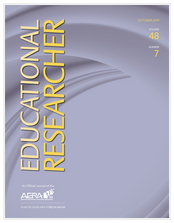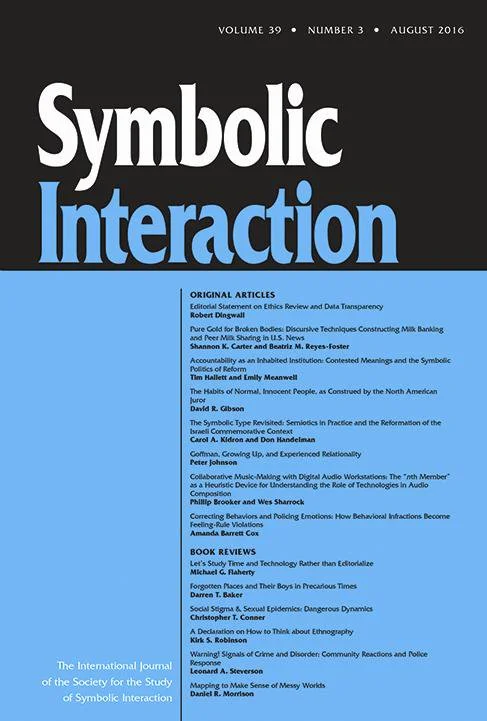Publications
Powered Down: The Microfoundations of Organizational Attempts to Redistribute Power
Amanda Barrett Cox. 2021. American Journal of Sociology 127(2):285-336.
* Received 2022 Clifford Geertz Prize for Best Article (Honorable Mention), American Sociological Association section on Sociology of Culture
What types of interactions facilitate the redistribution of power across institutional roles? To answer this question, I draw on ethnographic data from two organizations attempting to shift the conventional power relations within their respective institutions: a private philanthropic foundation seeking to transfer control over its grant-making to a community-based board, and a democratic school designed to give students and adults an equal voice in decisions. I offer a typology of power-shifting encounters and focus on two types of encounters that facilitate the balancing of power relations—symmetrizing encounters and encompassing encounters. I show that these encounters supported and were supported by power-redistributing discourses and organizational structures within each organization. These findings suggest that the balancing (or near-balancing) of asymmetrical power relations relies on power-distributing mechanisms that are consistent and aligned across multiple levels within an organization, from interactions, to organizational structures, to organizational culture and discourse. Symmetrizing encounters and encompassing encounters are the interactional building blocks within such an effort.
It’s Who You Know (and Who You Are): Social Capital in a School-Based Parent Network
Amanda Barrett Cox, Amy C. Steinbugler, and Rand Quinn. 2021. Sociology of Education 94(4):253-270.
Social capital is broadly beneficial, but parents reap particular benefits from network ties. Schools are key organizations through which parents develop ties. In this paper, we examine school-based networks that provide valuable resources. What factors are associated with greater access to key resources such as childcare, parenting advice, and educational information? Using network data from mothers of 8th-graders, we employ qualitative comparative analysis to examine mothers’ status and network characteristics associated with two types of resource access—basic access, where resources are accessed through a single parent, and robust access, where resources are accessed through multiple parents. We find particular combinations of status and network characteristics are critical. While a wide range of mothers attain basic access, race and socioeconomic status constrain robust access. These findings raise important questions about relational patterns and resource access for parents within a racially and socioeconomically diverse school.
Social Position or School Participation? Access and Mobilization of Social Capital in a School-Based Network
Quinn, Rand, Amanda Barrett Cox, and Amy Steinbugler. 2020. Educational Researcher 49(1):44-55.
Through school-based networks, parents obtain information, practical help, and other resources. Because networks vary by size and structure, access to these resources is uneven. What accounts for differences in access to social ties and in the mobilization of those ties to provide resources? In this article, we analyze a network of mothers of eighth-graders at a Philadelphia public school. With a near-complete census of network ties, we explore mothers’ access to and mobilization of information and practical help through social ties. We find that mothers’ school-based participation, rather than their race or class-based social position, is associated with resource access and mobilization. Importantly, greater levels of participation increase the likelihood that a mother will provide — but not obtain — information and practical help. Our results can help inform public policy and practice on family and community engagement in schools.
Engineered Struggle and ‘Earned’ Success: Preparation for Upward Mobility via Elite Boarding Schools
Cox, Amanda Barrett. 2018. Du Bois Review 15(2):467-488.
This paper examines how a nonprofit organization prepares low-income Black and Latino/a students to attend elite boarding high schools. Using ethnographic data, I investigate how the program engineers the experience of academic and emotional struggle for students, how students experience these struggles, and what students learn from this process. I find that the program’s academically-induced emotional rollercoaster serves to strengthen students’ confidence in their academic skills and their ability to persist in the face of academic challenges—a valuable emotional asset for the students as they enter elite boarding schools. However, I argue, the feeling students emerge with of having earned their successes (and failures) may ultimately serve to reproduce the individualistic, meritocratic discourses that support the patterns of social inequality the program helps its students sidestep.
Parental Challenges to Organizational Authority in an Elite School District: The Role of Cultural, Social, and Symbolic Capital
Lareau, Annette, Elliot B. Weininger, and Amanda Barrett Cox. 2018. Teachers College Record 120(1):1-46.
This paper examines the consequences of the abundance of cultural, social, and symbolic capital held by parents in one elite district, which we call Kingsley. During the period in which we collected data, the district administration sought to re-draw attendance boundaries for the two high schools in Kingsley. We show how shifting coalitions of parents made use of the full range of available resources in opposing, or in some instances supporting, district officials’ plans. We suggest that elite districts may be prone to a distinctive type of conflict between residents and policymakers. As economic segregation increases, it is possible that more districts will experience these challenges.
Cohorts, ‘Siblings,’ and Mentors: Organizational Structures and the Creation of Social Capital
Cox, Amanda Barrett. 2017. Sociology of Education 90(1):47-63.
* Received 2017 James D. Thompson Graduate Student Paper Award (Honorable Mention), American Sociological Association section on Organizations, Occupations and Work
* Received 2017 David Lee Stevenson Award for Outstanding Graduate Student Paper (Honorable Mention), American Sociological Association section on Sociology of Education
How can an organization help participants increase their social capital? Using data from an ethnographic study of Launch, an organization that prepares low-income students of color to attend elite boarding schools, I analyze how the organization’s structures not only generate social ties among students but also stratify those ties horizontally and vertically, thereby connecting students to a set of social contacts who occupy a range of hierarchical positions and who are able to provide access to resources that are beneficial in different contexts and at different times. I argue that organizational structures can function as tools for building—and embedding participants within—social networks with advantageous structural characteristics.
Correcting Behaviors and Policing Emotions: How Behavioral Infractions Become Feeling-Rule Violations
Cox, Amanda Barrett. 2016. Symbolic Interaction 39(3):484-503.
* Received 2018 Graduate Student Paper Award, American Sociological Association section on Sociology of Emotions
This study examines interactions surrounding the transmission, enforcement, and assessment of compliance with feeling rules. Using ethnographic data, I investigate how actors within an organization that prepares low-income black and Latino students to attend elite boarding schools serve as both emotional socializers, transmitting particular feeling rules, and emotional gatekeepers, enforcing and assessing compliance with those rules. I find that it was the interactional process surrounding rule reminders—rather than differences in students' behavioral infractions or in the feeling rules themselves—that was most consequential in shaping evaluations of students' compliance with the program's feeling rules. Gendered patterns in these interactions often resulted in male students being treated as behaviorally deviant and female students being treated as emotionally deviant.
Mechanisms of Organizational Commitment: Adding Frames to Greedy Institution Theory
Cox, Amanda Barrett. 2016. Sociological Forum 31(3):685-708.
How do organizations that make significant physical, emotional, and intellectual demands foster commitment and loyalty from voluntary participants? Greedy institution theory (Coser 1974) answers this question by identifying structural elements that foster participants' undivided commitment to “greedy” groups, those in which participants' involvement interferes with and takes precedence over their involvement in other social spheres. In this article, I argue for the expansion of greedy institution theory to include frames and framing processes as “greedy” organizational tools that work on the microinteractional level. Using data from an ethnographic study of an intensive program that prepares low-income students of color to attend elite boarding high schools, I show how the organization's “family” frame mobilized participants and encouraged interpretations and interactions that helped students persist in the program and remain committed to the organization. I argue that turning our attention to frames and framing processes will increase our understanding of the tools organizations use on a microinteractional level to build and repair participants' loyalty and commitment.










